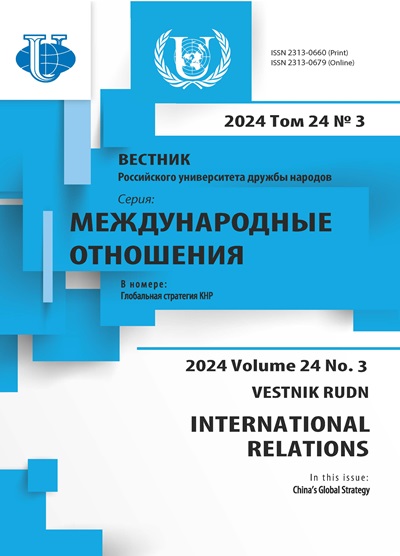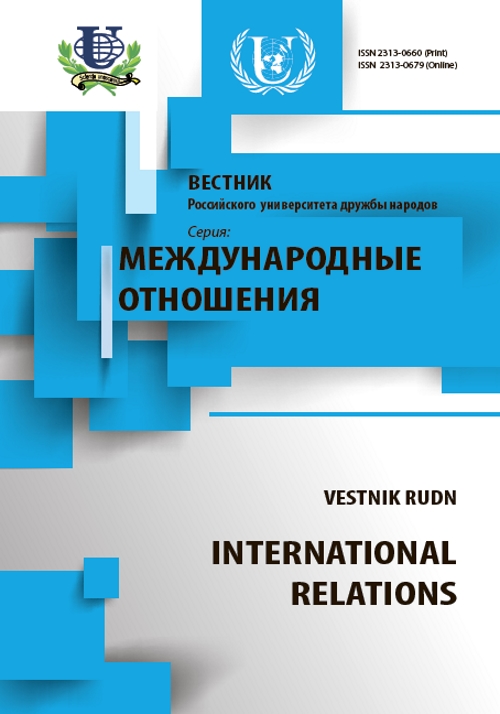Географические и политические факторы транспортировки каспийской нефти и газа Азербайджана и Казахстана
- Авторы: Гусейнова С1
-
Учреждения:
- Российский университет дружбы народов
- Выпуск: Том 16, № 1 (2016): "Мягкая сила" в международных отношениях. Образ России
- Страницы: 87-94
- Раздел: Статьи
- URL: https://journals.rudn.ru/international-relations/article/view/10531
Цитировать
Полный текст
Аннотация
В статье рассматриваются энергетические ресурсы в качестве инструментов внешней политики на примере Азербайджана и Казахстана. Данные страны являются одними из ключевых энергетических игроков в регионе. Автор статьи старается проанализировать и показать изнутри нефтяную политику Азербайджана и Казахстана в Каспийском регионе и связанные с ним проблемы. В статье показано, что Азербайджан и Казахстан сталкиваются с рядом ограничений на использование их энергетического потенциала, чтобы иметь независимую внешнюю политику. В статье описываются основные предположения теоретических подходов по нефтяной политике, с особым акцентом на Каспийский регион. В связи с этим в статье описываются различные пути внешней политики. В итоге показывается применение теоретических моделей для объяснения роли углеводородов в азербайджанской и казахской внешней политики.
Ключевые слова
Об авторах
С Гусейнова
Российский университет дружбы народов
Автор, ответственный за переписку.
Email: bbb@ru.ru
Кафедра теории и истории международных отношений
Список литературы
- Alymkulova A.S., 2015. Rol' integratsionnykh protsessov v razvitii stran Kaspiiskogo, Tsentral'no-Aziatskogo regiona [The role of integration processes in the development of the countries of the Caspian, Central Asian region]. Vestnik Natsional'noi akademii nauk Respubliki Kazakhstan. No. 3. P. 257-261 (in Russian).
- Abushov Kabus, 2009. Policing the Near Abroad: Russian Foreign Policy in the Near Abroad. Australian Journal of International Affair. Vol. 63 (2). P. 187-212.
- Akgun Suat, 2008. The Russian Federation as an Energy Supplier. Turkish Policy Quarterly-Huriyyet. P. 79-89.
- Alam Shah, 2002. Pipeline Politics in the Caspian Basin. Strategic Analysis. P. 81-94.
- Ali Tekin, Williams Paul A., 2009. EU-Russian Relations and Turkey's Role as an Energy Corridor. American Journal of Political Science. Vol. 61. No. 2. P. 337-356.
- Ali Tekin, Walterova I., 2007. Turkey's Geopolitical Role: The Energy Angle. American Journal of Political Science. Vol. 14. No. 1. P. 84-94.
- Donald P., 2014. Survey: Caspian and Central Asian producers face questions over future levels of output and exports. American Journal of Political Science. Vol. 39. No. 2. P. 10-17.
- Gawdat Bahgat, 2004. The Caspian Sea: Potentials and Prospects. American Journal of Political Science. Vol. 17. No. 1. P. 115-126.
- Ghafouri M., 2008. The Caspian Sea: Rivalry and Cooperation. American Journal of Political Science. Vol. 15. No. 2. P. 81-96.
- Inozemtsev V.L., 2009. Big Politics in Small Spaces: What Are Azerbaijan’s Prospects in the Geopolitical Arena? Vestnik MSU. No. 1. P. 59-71.
- Ismailov G., Hasanov I., Aliev S., 2010. Some ways of increase of efficiency of functioning of pipeline systems. SOCAR Proceedings. No. 4.
- Kashuro I.A., Martyushev A.I., Rozanov A.S., 2015. Rol' energeticheskikh resursov v sovremennom mire [The role of energy resources in the modern world]. Vestnik Moskovskogo universiteta. Seriya 25: Mezhdunarodnye otnosheniya i mirovaya politika. No. 2. P. 77-81 (in Russian).
- Khlopov O.A., 2015. Vneshnepoliticheskie aspekty energeticheskoi politiki administratsii B. Obamy [The foreign policy aspects of the energy policy of the B. Obama administration]. Vestnik Moskovskogo lingvisticheskogo universiteta. Seriya 5: Mezhdunarodnye otnosheniya i politologiya. No. 2. P. 24-32 (in Russian).
- Klare Michael T., 2002. Oil Moves the War Machine. The Progressive.Vol. 3. P. 96-105.
- Kosayev A.I., 2009. Qloballasma prosesinin əsas istiqamətleri ve nəticələr. BDU Elmi əsərləri [The main directions and results of the globalization process. Scientific materials of Baku State University]. No. 2. P. 32-41 (in Azerbaijani).
- Məhərrəmov A.M., 2010. Muasir dovrdə beynəlxalq iqtisadi əməkdasliq ve inteqrasiya problemləri. BDU Elmi əsərləri [International economic relations and integration problems in modern world. Scientific materials of Baku State University]. No. 2. P. 90-98 (in Azerbaijani).
- Morgenthau Hans J., Thompson Kenneth A., 1985. Politics Among Nations: The Struggle for Power and Peace. NY: Alfred A. Knopf.
- Mudarissov B.A., Lee Youah, 2014. The relationship between energy consumption and economic growth in Kazakhstan. Asian Journal of Political Science. Vol. 17. No. 1. P. 63-68.
- Nagiyev T.A., 2014. Qafqaz bolgəsi ve Xəzər hadisələri. BSU Elmi əsərləri [The processes of Caspian Sea and Caucasus region. Scientific materials of Baku Slavic University]. No. 1. P. 55-63 (in Azerbaijani).
- Oliker,Olga, Crane Keith, Schwartz Lowell H., Yusupov Catherine, (eds.), 2009. Russian Foreign Policy: Sources and Implications. CA: Rand.
- Rosenkvist Morten Anstorp, 2005. Black Soil: Oil and Ethnicity in the Nagorno-Karabakh Conflict. Master Thesis, Oslo University.
- Seyidova D.G., 2013. Xəzər bolgəsinde beynəlxalq munasibətlərə təsir edən amillər. BSU Elmi əsərləri [Factors affecting international relations in the Caspian region. Scientific materials of Baku Slavic University]. No. 3. P. 92-101 (in Azerbaijani).
- Suha Bolukbası, 2005. Jockeying for Power in the Caspian Basin. The Caspian: Politics, Energy and Security. NY: Routledge Curzon.
- Souleimanov E., Kraus J., 2012. Turkey: An Important East-West Energy Hub. American Journal of Political Science. Vol. 19. No. 2. P. 157-168.
- Thinking Beyond the Stalemate in US-Iranian Relations. Volume II Issues and Analysis, 2001. The Atlantic Council of the United States, Occasional Paper.
- Waltz Kenneth, 1979. Theory of International Politics. Reading, Addison-Wesley.
- Wendt Alexander, 1992. Anarchy is What States Make of it: The Social Construction of International Relations. International Organization.
- Willy Olsen, 2004. The Role of Oil in the Development of Azerbaijan. The Caspian: Politics, Energy and Security. Ed. Shirin Akiner. London: Routledge Curzon.
- Worldwide Look at Reserves and Production, 2008. Oil & Gas Journal. Vol. 106. No. 48.
- Yazdani Enayatollah, 2006. Competition over the Caspian Oil Routes: Oilers and Gamers Perspective, Alternatives. Turkish Journal of International Relations. Vol. 5. No. 1-2. P. 51-64.











